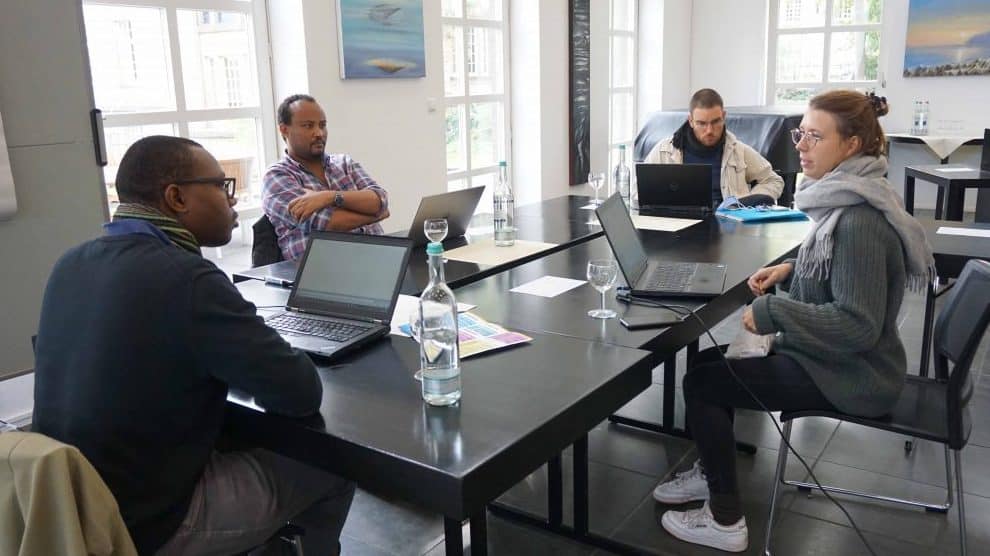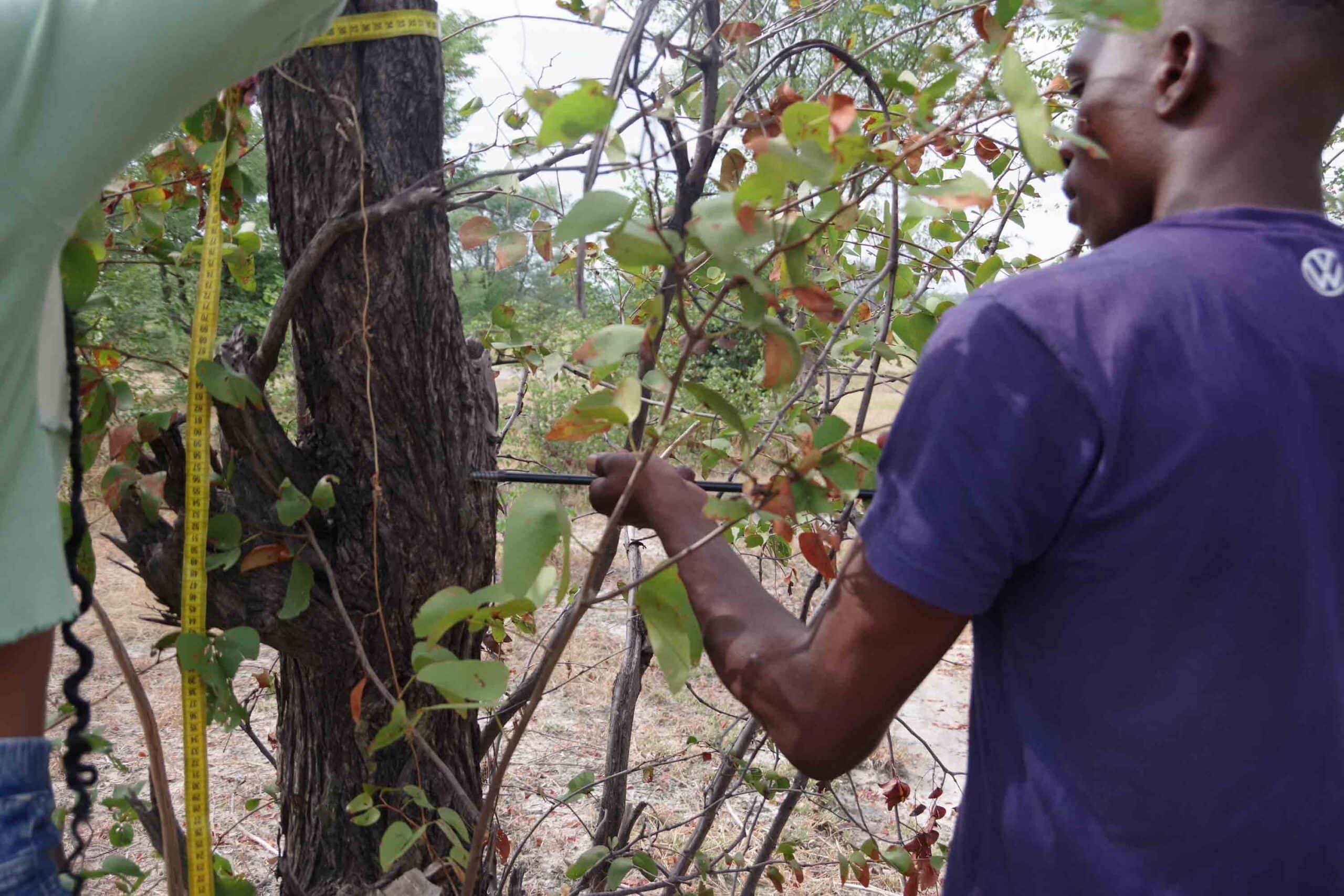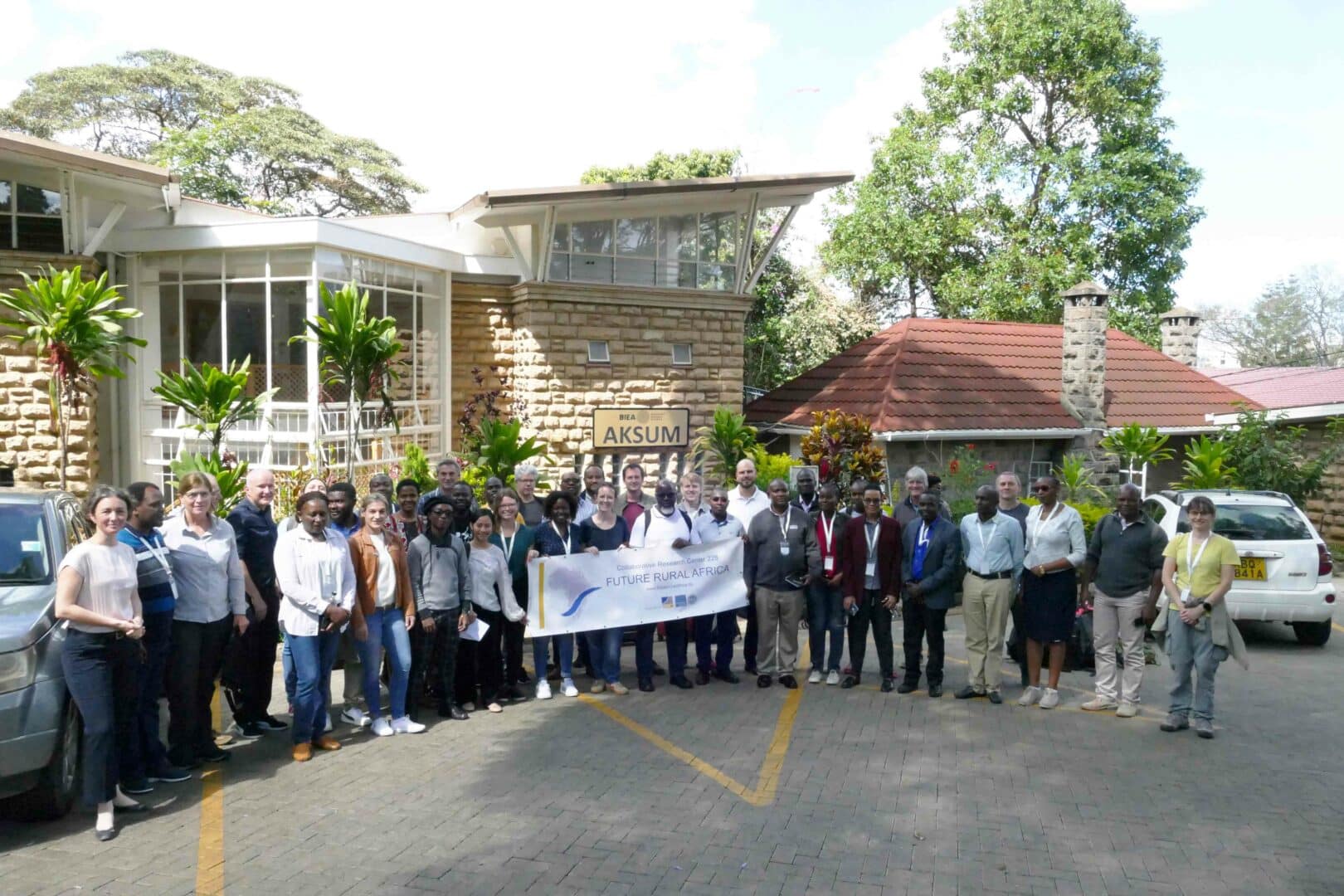African Rural Futures: Debates, Theories, and Challenges
Rattled by the adverse effects of COVID-19, the year 2020 continues to exemplify the global phase unprecedented with volatility, uncertainty, complexity, and ambiguities. If the events of this year are anything to go by, Africa in particular finds herself at the center stage of systemic vulnerabilities as exposed by: The locust invasion in the Horn and Northeastern region of Africa, floods, and the ongoing COVID-19 pandemic. The debate surrounding Africa’s future remains timely and more relevant than ever. Equivocally, existing in the paradoxical nature of optimism through anticipation and aspiration, as well as uncertainty and ambiguity.
This year’s Summer School was particularly unique, with the workshops being delivered in both physical and virtual forums. Under the thematic topic, African Rural Futures: Theories, Debates, and Challenges the Collaborative Research Center (CRC) “Future Rural Africa” together with its partners’ institutions in Africa and Germany, drew interesting discussions surrounding a wide range of empirical research and new findings in the fields of social-ecological transformation and futures studies. There were at least 40 participants from the University of Bonn, University of Cologne, University of Namibia, Sokoine University, Mzumbe University, University of Dar es Salaam, Kenyatta University, University of Nairobi, and Bonn International Center for Conversation. This report will provide a day to day account of the workshops conducted as well as the outcomes and reflections as captured by the participants.
Executive Summary
Day 1:
Although the first day of the Summer School faced some technical difficulties due to a power shortage cut which had affected the surrounding area, this did not deter the participants\’ mood. The students were quite eager to have the opportunity to network, and exchanged ideas with one another, making the agenda flexible and open to adjustment. To start off the Summer School, the doctoral students made brief poster presentations of their research, taking the opportunity to give and receive feedback from each other and from Prof. Mathias Becker (one of the Principal Investigators of the Sub-Project A03, Agro-Futures).
The participants following online were equally patient and joined the workshop in the afternoon, with a plenary lecture by Prof. Mathias Becker on the historical context of rice production in Africa. The lecture as intended, kicked off the debate over global value chain actors and how these dynamics consequently affect the production gap and those who benefit from it. Dr. Selma Lendelvo from the University of Namibia gave a lecture on the different conservation approaches in Namibia and how they have contributed to tourism growth and strengthening local livelihood. She also provided some case studies illustrating the progress made over the years through the inclusive conservation approach.
Delivering the keynote address to inaugurate the workshops, Prof. Detlef Müller-Mahn, CRC spokesperson, gave precedence to the significance of fostering mutually benefiting partnerships in research. With this regard, he spoke of the importance of linkages not only in trade but in expertise, especially between the global North and South. He also announced that the University of Bonn is in the process of hiring two senior researchers from the African partner universities and in doing so, will take up the capacities of Principle Investigators in the CRC. This is one of the initiatives of the CRC to strengthen its partnerships in Africa as well as its collaborative functions. Concluding the events of the day, Dr. Eric Kioko from Kenyatta University gave a brief synopsis of conducting research during the pandemic, and the general regulatory measures to manage the outbreak of new infections in Kenya, Tanzania, and Namibia.
Day 2:
The workshop “Fieldwork meets Crisis”, conducted by Prof. Martin Zillinger and Dr. Anna Ramella, provided the participants with the platform to exchange views and discuss how to deal with the current interruption of fieldwork. The workshop, delivered online to all the participants, similarly captured the taste and feel of academic exchange as characterized by the inability of researchers to have direct physical contact with the field. Methodological adjustments that will enable cooperation over distance and thus realize “remote fieldwork” involving research partnerships were discussed exhaustively. See the outcomes of each group work task assigned during the session on the participants\’ outcome section.
Day 3:
The seminars of the day focused on the development theories and concepts and the underlining concepts of studies on future making as the foundational principles surrounding the research in the CRC. Prof. Javier Revilla Diez discussed the foundations of development theories and concepts of economic geography, in the framework of future making and regional development. The lecture was followed by Prof. Anja Linstädter who gave input on concepts of future making studies, focusing on how future making studies could be adopted in multidisciplinary contexts.
Day 4:
The Summer School endeavors to foster an atmosphere of vibrant academic exchange and for this purpose, the fourth day of the workshops, gave room for the participants to gain insights on advancing their research projects from post-doctoral researchers and principal investigators. The participants split up into four break-out groups and a subsequent world-café to discuss various topics.
Breakout group A, led by Dr. Britta Höllermann was looking at interdisciplinary integration and the development of a systems perspective beyond the disciplinary boundaries.
Breakout group B, hosted by Dr. Clemens Greiner, focused on the development of panels for the upcoming European Conference of African Studies to be held in Cologne (due to the current Corona pandemic, the conference has recently been shifted from 2021 to 2023).
In group C, Dr. Hauke Vehrs led a discussion on the reflection of ethics in fieldwork and the positionality of the researcher.
Dr. Emmanuel Rukundo hosted a workshop on the socio-economic analysis of the data collected in the CRC household survey, in the breakout group D.
Day 5:
The last day of the Summer School culminated with three seminars focusing on scientific writing and publishing as well as science communication. Borrowing from the observations made on the poster presentations that had been made by the doctoral students on the first day of the Summer School, Prof. Mathias Becker, gave his final input on scripting and presenting a memorable presentation and what it takes to stand out in a scholarly conference. His lecture was followed by Alma van der Veen, the head of Public Relations in the Center for Development Studies (ZEF) from the University of Bonn. She addressed the opportunities present in communicating scientific work in the digital space, illustrating the various channels the junior researchers could use to publicize their work and increase their readability reach. As an additional format of communicating one’s scientific work, publishing in the academic world is key. Dr. Cory Whitney from ZEF lead this session, providing insights in structuring an article for publishing, writing tips, and giving and receiving feedback. In doing so, he offered the participants the opportunity to review and give feedback on each other’s research abstract.
The Summer School closed off with votes of thanks from the organizing team, which also included bidding Dr. Juliet Kamau farewell and best wishes in the next step of her career. Dr. Juliet Kamau was one of the post-doctoral researchers and had worked in the CRC in the capacity of managing international partnerships. During her tenure, she organized the Summer School training.
The complete report can be accessed through this link.






